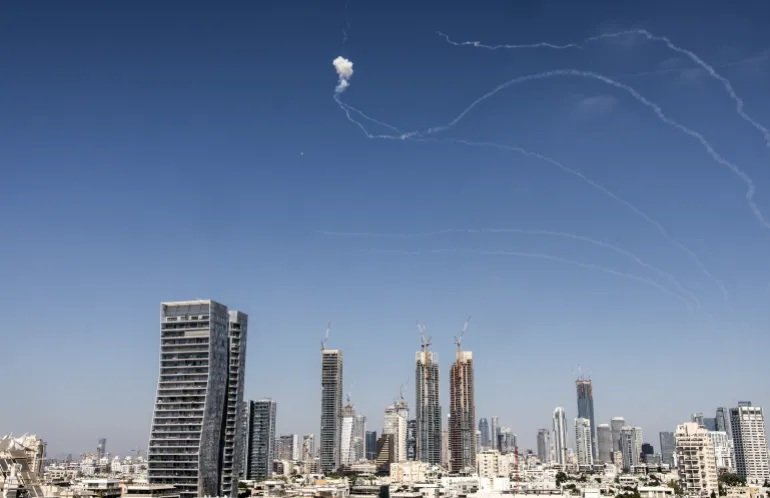Iran launches new missile barrage on Israel; Tel Aviv warns of prolonged war
IAEA warns of contamination risk at Iranian nuclear site



Iran launched a fresh wave of ballistic missile attacks on central Israel, igniting a major fire in the city of Holon as conflicts enter 9th day.
Besides, Israeli attacks were reported at strategic sites in Iran including facilities near Isfahan, home to a key nuclear research center.
In a televised address, Israel's military chief Lt. Gen. Eyal Zamir said the country must brace for a “prolonged campaign” against Iran, marking the ninth consecutive day of Israeli airstrikes.
“This is a critical moment for national security,” Zamir stated. “We will not relent in neutralizing the threats posed by Iranian proxies and their command structures.”
Amid the escalating hostilities, Iranian Foreign Minister Abbas Araghchi maintained that Iran’s nuclear programme remains peaceful and reaffirmed Tehran's openness to diplomacy.
However, he insisted that Israel must halt its military actions first. “We do not seek war, but we will defend our sovereignty,” Araghchi said.
The Iranian Revolutionary Guards Corps (IRGC) confirmed the latest assault, calling it their 18th strike on Israeli targets.
According to Iranian state-affiliated media Tasnim, the IRGC said the operation focused on military installations and operational support centers, including areas near Ben Gurion International Airport.
The attack reportedly involved Shahed-136 drones and both solid- and liquid-fueled missiles.
“The most advanced defence systems were unable to intercept them,” the IRGC claimed, vowing that such combined drone and missile operations “will continue continuously and purposefully.”
Israeli military officials announced the killing of a second commander from Iran’s Islamic Revolutionary Guards Corps’ unmanned aerial vehicle (UAV) unit.
Identified as Amin Pour Jodkhi, the commander was accused of overseeing the launch of hundreds of drones targeting Israeli positions from southwestern Iran. Israel claimed that Jodkhi had assumed leadership responsibilities after the June 13 assassination of Tahar Fur, another top drone commander.
The International Atomic Energy Agency (IAEA) expressed grave concerns following reports of Israeli strikes on the Natanz nuclear facility. In a statement, the agency warned of potential “radiological and chemical contamination” within the site but noted no change in radioactivity levels outside the facility.
Adding to the geopolitical rift, U.S. President Donald Trump publicly rebuked his intelligence chief, Tulsi Gabbard, after she told lawmakers that there was no solid evidence Iran was developing nuclear weapons.
“She is wrong. We know what they’re doing,” Trump said during a press conference at the White House.
As both sides harden their rhetoric and escalate military actions, international observers fear the conflict may spiral into a wider regional war. Diplomatic efforts by European and UN officials have so far failed to de-escalate the situation.
The United Nations Security Council is expected to convene an emergency session to discuss the deteriorating situation and assess the potential for broader conflict in the region.
Over the past week, Israeli air strikes have destroyed Iranian military facilities and weapons, and killed senior military commanders and nuclear scientists.
Iran's health ministry said on Sunday that at least 224 people had been killed, while a human rights group put the unofficial death toll at 639 on Thursday.
Iran has launched hundreds of ballistic missiles at Israel in response to the air strikes.



